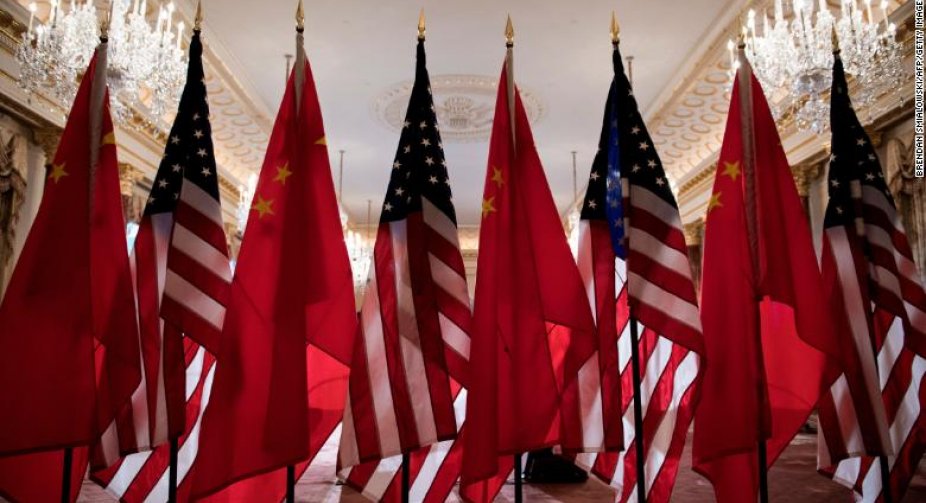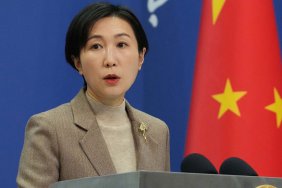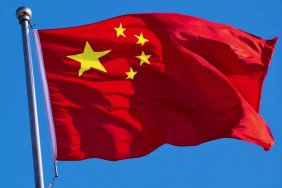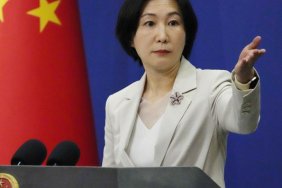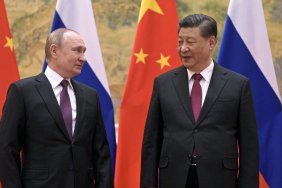Sherman arrived in the northern city of Tianjin Sunday for meetings with Xie and State Councilor and Foreign Minister Wang Yi, as part of what her office described as ongoing US efforts to hold candid exchanges with Chinese officials to "advance US interests and values and to responsibly manage the relationship."
The Chinese ministry statement, which comes ahead of Sherman's meeting with Wang, accused the US of wanting to reignite a "sense of national purpose" by orchestrating a "whole-of-government and whole-of-society" campaign to demonize and suppress China.
"The US seems to be demanding cooperation when it wants something from China; decoupling, cutting off supplies, blockading or sanctioning China when it believes it has advantage; and resorting to conflict and confrontation at all costs," said Xie, according to the statement.
Xie was also quoted as saying the US was in "no position to lecture China on democracy and human rights," pointing to the US' historic treatment of Native Americans, and US military action.
The US side has yet to release a statement on the meeting.
The talks come more than three months after the countries' confronrarional Alaska meeting in March, during which diplomats from both sides publicly exchanged barbs.
During that meeting, the first under US President Joe Biden's administration, Chinese diplomats accused the US delegation of being "condescending" in its tone, while a US official said the representatives from Beijing seemed "intent on grandstanding."
In the months since Alaska, the two countries have continued to clash across a range of fronts, with the US government being highly critical of China's policies in Hong Kong and Xinjiang. On Friday, China announced new sanctions against seven US officials -- including former Commerce Secretary Wilbur Ross -- and entities in response to US sanctions against several Hong Kong government officials, according to China's Ministry of Foreign Affairs.
Speaking to CNN, Willy Lam, an adjunct professor at the Chinese University of Hong Kong and a longtime analyst of Chinese politics, described the China-US relationship as being at an "all time low."
Talks such as those between Sherman and Wang are therefore aimed at preventing the adversarial relations from worsening into direct conflict, said Lam. "Sherman said she wants to build guardrails and parameters. So that conflicts can be treated through negotiations and not through direct confrontation and conflict," said Lam.
"If the negotiations go well, there might be a possibility of a face-to-face meeting between President Joe Biden and President Xi Jinping at the G20 Summit in Italy in October," said Lam.
"However, the Chinese have earlier rejected meetings between the US Defense Secretary, Lloyd Austin, and the senior official in the Chinese Central Military Commission. The Chinese have also been lukewarm about setting up a hotline. So whether that would be a top level summit between Biden and Xi remains very much in doubt," added Lam.
Speaking in advance of his meeting with Sherman on Monday, Wang Yi told Hong Kong broadcaster Phoenix TV that "no country is superior to others," and China will not accept any country that assumes such a position.
"The US has always put pressure on others with its self-claimed strengths in a condescending manner, thinking that it is superior to others," Wang said Saturday. "But I want to tell the US side that there is never a country that is superior to others, and there shouldn't be one, and China will not accept any country boasting of its superiority."
Wang's comments come in response to remarks by a US State Department spokesperson during a news briefing last Wednesday when he said Sherman would be traveling to China "from a position of strength."
